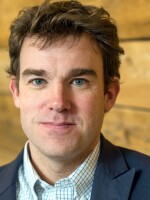Updated 3:20 p.m.
Following several positive cases of COVID-19 that appear to have spread person-to-person in Vermont, Gov. Phil Scott has banned gatherings of 50 or more people. The ban excludes buses, airports and grocery stores.
Scott made this announcement at a press conference Monday. He originally set the threshold at 250 people or more at another press conference on Friday.
"Our strategy is to slow this down and prevent as many cases as possible," Scott said Monday. “The worst is yet to come — we know it’s coming, we just have to slow it down a bit.”
Sign up to receive email updates from VPR about the new coronavirus here.
The governor announced the new limit as the number of COVID-19 cases continues to tick upwards in Vermont. After the first two people tested positive for the illness last week, health officials announced the three more cases Saturday, and another three on Sunday. By Monday morning, the total was up to 12: Four out-of-state residents and eight Vermonters.
The four newest cases include a woman in her 60s from Bennington County who is hospitalized at Southwestern Vermont Medical Center, and three people self-isolating at home: An Orange County man in his 60s, a Chittenden County woman in her 30s and a Chittenden County man in his 30s.
"In the U.S., the virus has been clearly overtaking our efforts at containment. In Vermont, our testing underlines this assessment," said Vermont Health Commissioner Mark Levine. "We have now tested a total of 415 people, and are up to 12 positive tests."
Levine added: "At least three out of the four most recent cases appear to be the result of person-to-person spread in the community, and not travel-related."
He explained this was among the reasons the Scott administration decided to not close the state's public schools on Friday, but reversed course on Sunday and ordered their dismissal by Wednesday.
"But the governor and I both stressed that the calculus could change, and change soon," Levine said. "Even these small numbers indicate the community transitioning is occurring. And that is why implementing these social distancing measures is a powerful public health tool."
Click here for all of VPR's coronavirus coverage.
Scott said his administration is drawing up plans to help provide childcare to workers in the health care and essential fields once state schools close this week. The administration has repeatedly said that offering such support — and tasking school personnel to help come up with a plan — was another key reason why they held off on closing on schools until mid-week.
“We don’t have it perfected, but we’re working on the plan as we speak,” Scott said.
The governor also revealed the state has been working with the University of Vermont and the University of Vermont Medical Center to develop more testing capacity for the coronavirus.
Administration officials shared few details about the plan, which aims to help the state at a time when the nation’s limited testing capacity has been identified as one of the biggest dangers in the pandemic.
“It’s going to be a nice, collaborative effort,” Levine said.
Scott added: “We’re taking a Vermont approach, and I believe it’s going to work.”
Scott said he had talked to Rep. Peter Welch and Sen. Patrick Leahy over the weekend about a federal economic stimulus package. The governor said he was concerned about economic impacts due to the coronvirus, and urged Vermonters to support businesses if possible.
“This could certainly be devastating to our economy, but at the same time, if we do this right and we have this period of time over the next month or two and we can get some control over this … there’s a path forward,” Scott said.
The governor also addressed the growing concern that out-of-state residents are fleeing areas with higher populations and sheltering in their second homes in Vermont, potentially straining local infrastructure.
Questions, comments, concerns or experiences you want to share about the new coronavirus? Fill out VPR's brief survey here.
Scott said the behavior was “concerning,” and asked out-of-state arrivals to be conscientious.
“Obviously we as a nation are in this together, and we’re going to get through this together. We know we have second home-owners here who might be seeking refuge from their own communities,” he said. “We would ask them to self-evaluate and ask themselves whether that’s a good idea or not. But once they are here, we’re going to take care of them. We’re not going to turn them away just because they’re from another state.”






